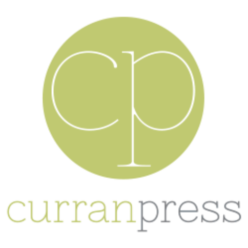If you’ve poured your heart and soul into a book, it’s entirely possible to see your labor of love in print. In this age of a rapidly-changing publishing industry, you have many options at your disposal. Here are brief descriptions of a few options, as well as some advantages and disadvantages to each.
Option 1: Self-Publish
Self-publishing print books and eBooks allows you to maintain full control over your work while yielding the highest author-royalty percentage. A variety of self-publishing platforms (otherwise known as vanity presses) make this publishing option a very easy, inexpensive alternative to traditional publishing.
Upload your completed work as pdf and it will magically appear as available for customers to order on amazon.com, iTunes, barnesandnoble.com—and even at your local bookstore or library. Print orders are fulfilled by the self-publishing platform and mailed directly to the customer.
Advantages
- maintain full control over content
- reap the highest author-royalty percentage
- relatively low investment
Disadvantages
- success is driven entirely by author
- all aspects of publishing must be managed and executed by author (or pay editors and consultants to do that work)
Option 2: Traditional Publishing with a Small Publisher
Publishing with a small press is another solution. The publisher will likely assume all responsibility related to actually publishing the work such as business (finances), production, printing, and distribution. Planning and execution of promotion and marketing efforts will likely be mutually shared between the author and publisher, reflecting the strengths that each side brings to the table. The small publisher will likely offer very personalized service and function as an equal partner in the success of a book.
Advantages
- publisher assumes all responsibility related to publishing
- publisher offers personalized (often transparent) service, ensuring best interest of both sides
- mutually-shared promotion and marketing efforts between publisher and author
Disadvantages
- mutually-shared promotion and marketing efforts between publisher and author (depends on how you feel about sharing the leg work!)
- publisher often requires an edited and finished manuscript, depending on the return on investment
Option 3: Traditional Publishing with a Large Publisher
Like a small publisher, a large publisher would assume all responsibility related to actually publishing the work such as business (finances), production, printing, and distribution. The large publisher will have the capacity to plan and execute all promotion and marketing efforts. However, they have a large “book bag” so there is no guarantee that they will put the same effort into every book.
Getting a book in front of a large publisher for consideration is not easy. Publishers will often only look at books that come from a literary agent, but there are success stories when authors venture out on their own.
Advantages
- publisher assumes all responsibility related to publishing and distribution
- publisher has the capacity to plan and execute all promotion and marketing efforts
Increasing Success With Your Publishing Choice
Asking the right people to read your work will be critical to its success. An author recently hired me to perform a light edit of his book, only after he had released his book to the public. He decided to have his book edited when a reviewer (a librarian who wrote her review on amazon) found a grammatical error on the first page and stopped reading the book altogether. Whether you plan to go right to self-publishing or you would like to choose to partner with a publisher, you will want to avoid typos, grammatical errors, and otherwise unpolished or incoherent content.
- Ask friends and family to read your work and provide honest feedback.
- Ask subject-matter experts (you may have to pay them) to read your work and provide honest feedback. Provide them with a questionnaire of sorts if you’d like them to focus on specific things.
- Hire a development editor to perform a full content edit of your work.
- Hire a copyeditor to preform at least a light edit.

